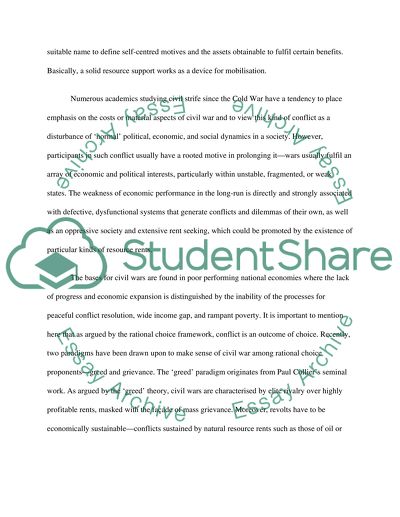Cite this document
(“What role do greed and grievance play in civil war Essay”, n.d.)
What role do greed and grievance play in civil war Essay. Retrieved from https://studentshare.org/social-science/1691566-what-role-do-greed-and-grievance-play-in-civil-war
What role do greed and grievance play in civil war Essay. Retrieved from https://studentshare.org/social-science/1691566-what-role-do-greed-and-grievance-play-in-civil-war
(What Role Do Greed and Grievance Play in Civil War Essay)
What Role Do Greed and Grievance Play in Civil War Essay. https://studentshare.org/social-science/1691566-what-role-do-greed-and-grievance-play-in-civil-war.
What Role Do Greed and Grievance Play in Civil War Essay. https://studentshare.org/social-science/1691566-what-role-do-greed-and-grievance-play-in-civil-war.
“What Role Do Greed and Grievance Play in Civil War Essay”, n.d. https://studentshare.org/social-science/1691566-what-role-do-greed-and-grievance-play-in-civil-war.


